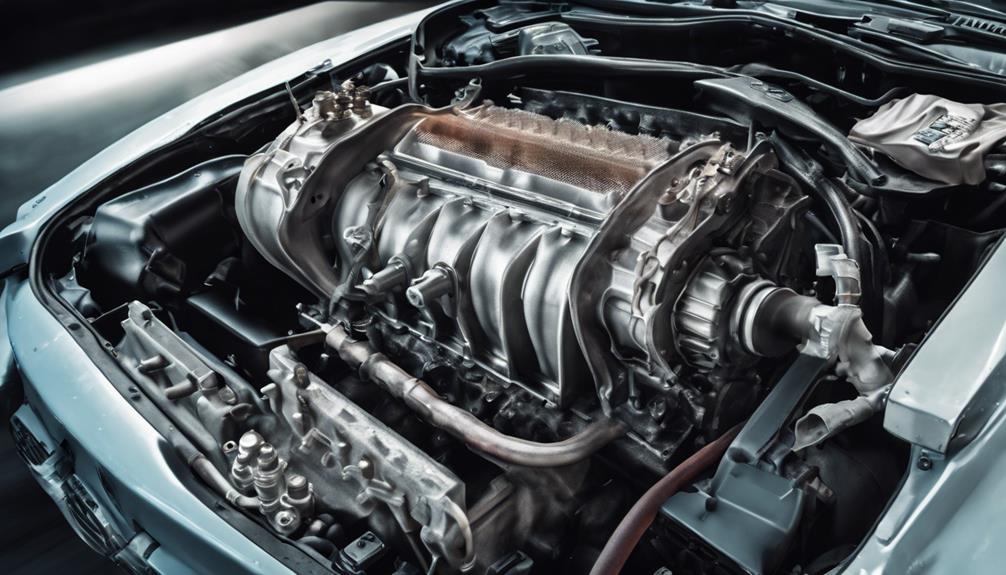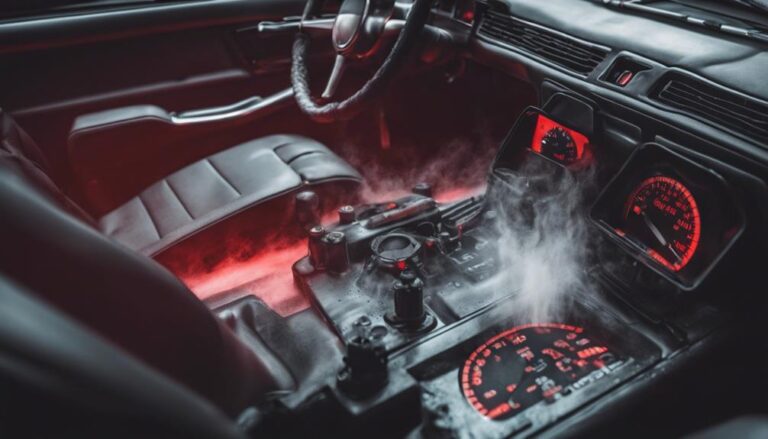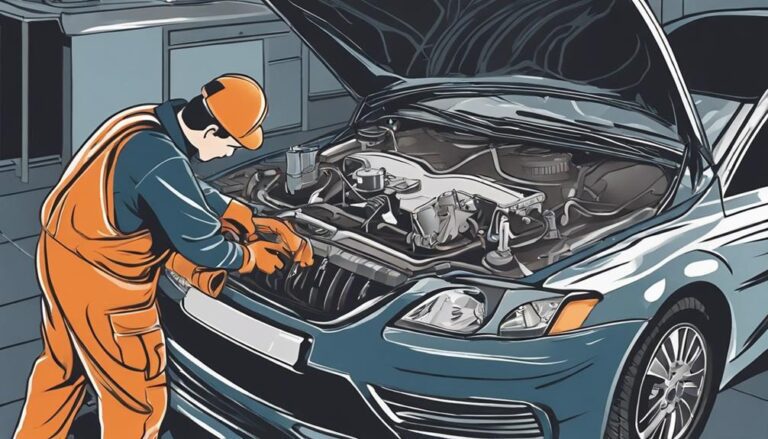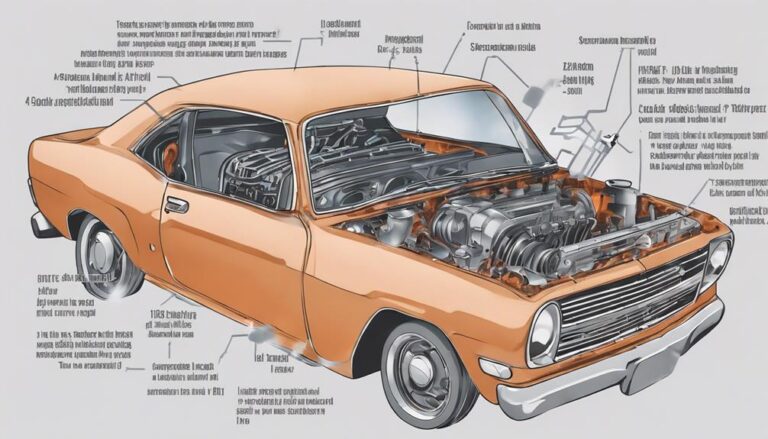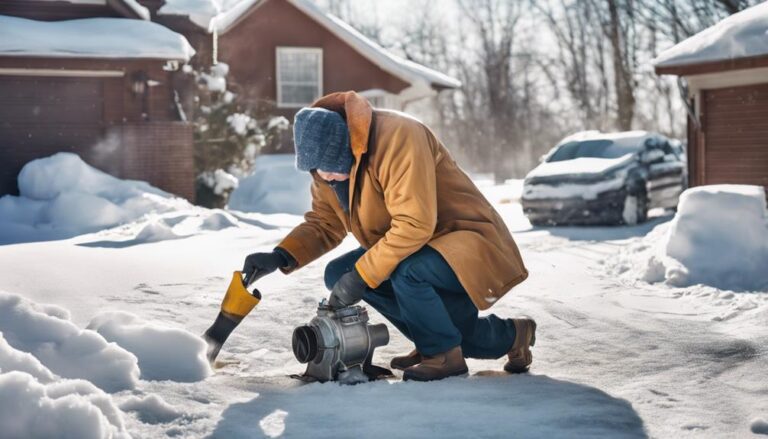Why Is My Blower Motor Making Noise?
You're driving along, and suddenly, the once peaceful hum of your car's blower motor has transformed into an unsettling racket. What could be causing this disruption in your vehicle's otherwise smooth operation?
Before you contemplate or ponder costly repairs, take a moment to ponder some common culprits that may be behind this unwelcome noise.
Stay tuned to uncover the reasons why your blower motor is making such a fuss and what steps you can take to address it effectively.
Key Takeaways
- Worn-out bearings and debris accumulation cause blower motor noise.
- Regular maintenance, lubrication, and inspection help prevent noise issues.
- Seek professional diagnosis for accurate solutions to blower motor noise.
- Consider ventilation, soundproofing, and maintenance to prevent future noise disturbances.
Common Causes of Blower Motor Noise
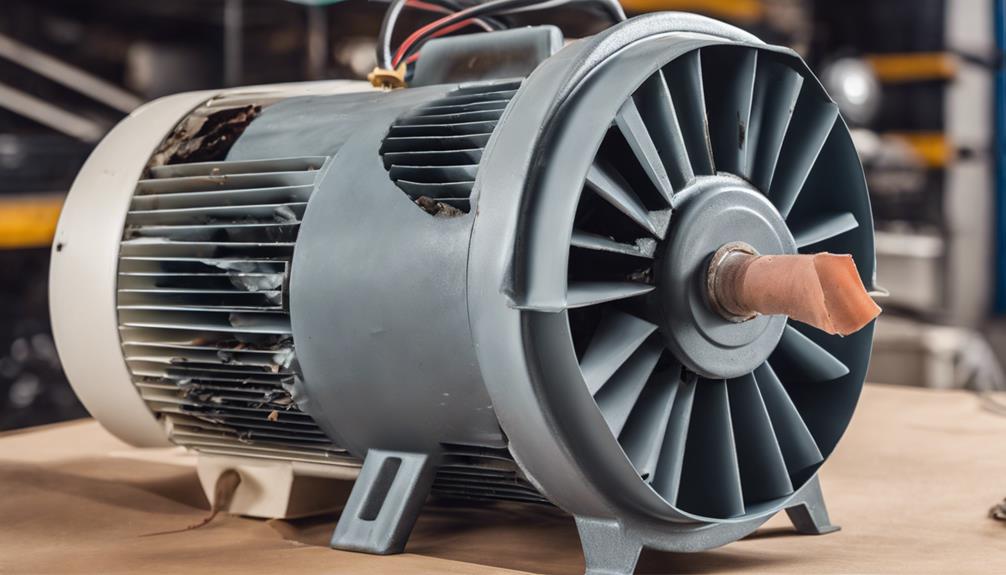
If you notice a loud humming or rattling coming from your blower motor, common causes of blower motor noise may include worn out bearings or debris accumulation within the system. Worn out bearings can lead to excessive friction, resulting in a humming sound. Debris accumulation, such as dirt or dust, can cause rattling as the fan blades hit the debris.
Motor replacement may be necessary if the bearings are worn beyond repair, causing the blower motor noise. Lubrication issues can also contribute to the noise, as lack of proper lubrication can lead to increased friction and wear on the motor components. Regular maintenance, including lubricating the bearings, can help prevent blower motor noise due to lubrication issues.
If you suspect these common causes are behind your blower motor noise, it's advisable to consult a professional for motor replacement or maintenance to make sure the proper functioning of your HVAC system.
DIY Troubleshooting Tips for Noise
To troubleshoot blower motor noise on your own, start by inspecting the system for any visible debris or signs of wear on the motor components. To begin with, check if the motor needs lubrication. Lack of proper lubrication can cause friction, leading to noisy operation. Apply lubricant as recommended by the manufacturer to the motor bearings to reduce friction and noise.
Next, examine the fan blades for any imbalance. Imbalanced fan blades can cause vibrations, resulting in noise during operation. Make sure that the fan blades are clean and properly balanced. You can use a balance kit to adjust the blades if needed. Additionally, tighten any loose screws or bolts in the motor assembly that could be causing vibration.
Importance of Regular Maintenance
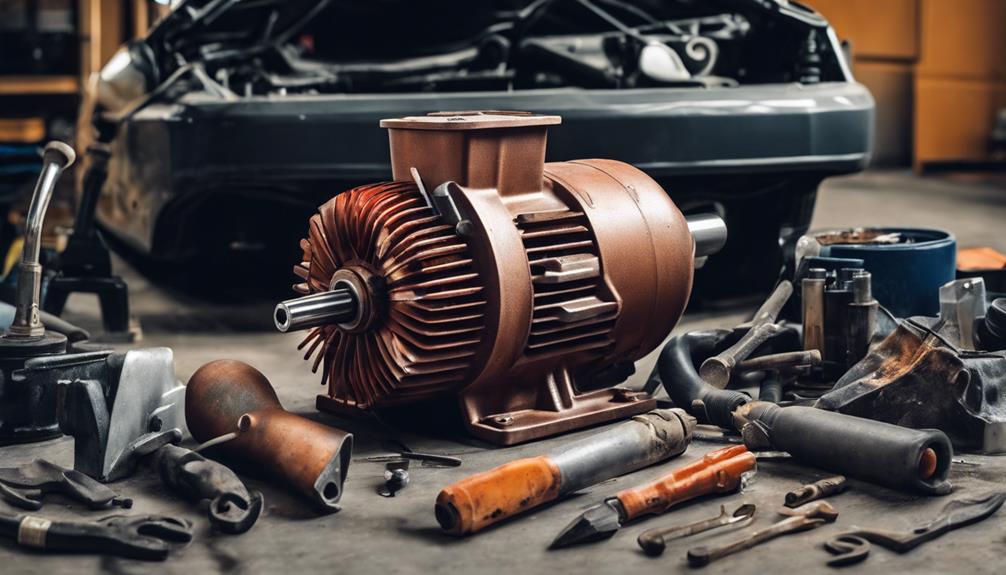
Regular maintenance is essential for the optimal performance and longevity of your blower motor. It is crucial to follow a maintenance schedule to ensure that your blower motor runs smoothly and quietly. Checking and replacing air filters regularly can prevent debris buildup and noise. Proper lubrication of moving parts helps reduce friction and noise. Inspecting the blower motor's housing for loose components and tightening them can prevent unnecessary noise. Cleaning the blower wheel eliminates vibrations and rattling noises from dirt accumulation. Checking the belt for wear and tear and replacing it when necessary can prevent loud squealing noises. By sticking to a consistent maintenance routine, you can ensure that your blower motor operates efficiently and quietly, creating a comfortable environment.
Professional Repair Options Available
Maintaining a well-functioning blower motor is key, but when issues arise, exploring professional repair options can efficiently address any noise concerns. Seeking expert diagnosis is important when your blower motor starts making unusual noises. Professional technicians have the knowledge and tools to accurately pinpoint the root cause of the noise, whether it be a worn-out bearing, a faulty fan blade, or a motor issue. Once the problem is identified, they can provide tailored repair solutions to eliminate the noise and restore your blower motor's best functionality.
Repair solutions may include lubricating moving parts, replacing worn-out components, or recalibrating the motor. In some cases, a simple adjustment might be all that's needed to silence the noise. However, for more complex issues, professional repair services can offer thorough solutions to ensure your blower motor operates smoothly and quietly. Don't hesitate to reach out to skilled technicians for professional assistance in diagnosing and resolving blower motor noise problems effectively.
Preventing Future Blower Motor Noise
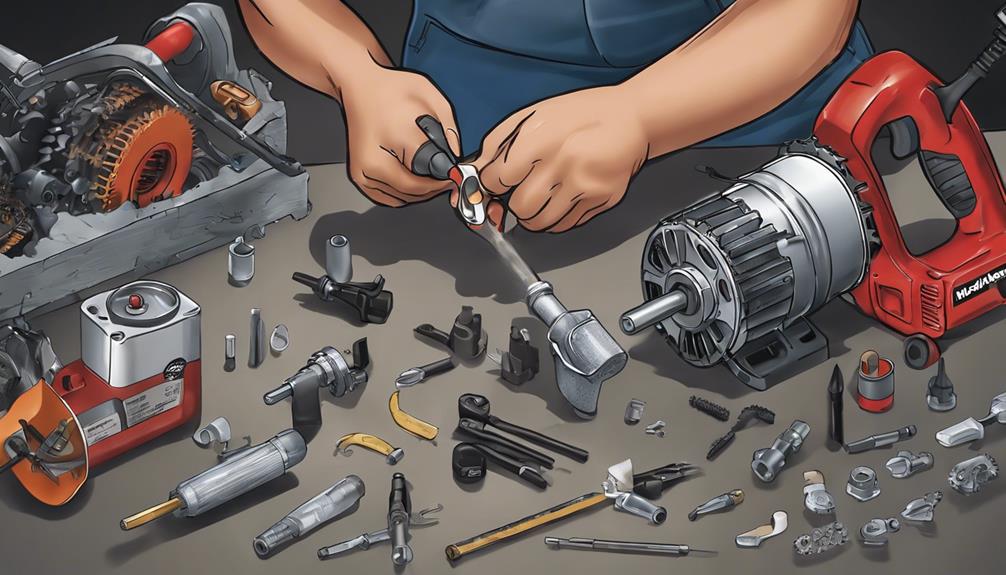
Guarantee proper ventilation in your blower motor system to prevent future noise issues. Adequate airflow can help reduce overheating, which is a common cause of blower motor noise. Additionally, ponder soundproofing techniques to minimize vibrations and sound transmission. Installing sound-dampening materials around the motor can greatly reduce noise levels. Regular maintenance, such as cleaning and lubricating moving parts, can also prevent excessive friction and noise.
Moreover, if your blower motor continues to make noise despite these preventive measures, it may be time to mull over motor replacement. Over time, wear and tear can lead to irreversible damage in the motor components, causing persistent noise issues. Upgrading to a new, high-quality motor can't only eliminate noise problems but also improve the overall efficiency of your HVAC system.
Frequently Asked Questions
Can Blower Motor Noise Cause Any Damage to Other Parts of My HVAC System?
Blower motor noise, if left unchecked, can potentially harm other HVAC components. Regular maintenance, such as lubricating moving parts and tightening connections, can prevent damage. Noise reduction techniques like insulating ducts can also minimize sound transmission throughout the system.
Is It Safe to Continue Using My HVAC System if the Blower Motor Is Making Noise?
You may think it's fine to keep using your HVAC with a noisy blower motor. However, high noise levels could indicate issues that, if neglected, may lead to safety concerns and costly repairs. Regular maintenance is key.
How Long Does a Blower Motor Typically Last Before It Starts Making Noise?
Blower motors typically last 10-15 years before noise issues arise. Regular maintenance like cleaning and lubrication prolongs lifespan. Troubleshooting guide includes checking for debris and loose parts. Replacement options focus on efficiency and noise reduction.
Are There Any Warning Signs or Symptoms to Look Out for Before the Blower Motor Starts Making Noise?
To prevent blower motor noise, stay vigilant for early signs like reduced airflow, strange smells, or rattling sounds. Regular maintenance can catch issues before they escalate. Use noise reduction and troubleshooting techniques for peace of mind.
Are There Any Specific Brands or Models of Blower Motors That Are Known for Being Quieter or More Reliable?
When looking for quieter and reliable blower motors, consider brands like Carrier, Trane, and Lennox. These models are known for their low noise levels and high efficiency. Regular maintenance and proper troubleshooting can help make sure your blower motor stays quiet and efficient.
Conclusion
To sum up, if your blower motor is making noise, it could be due to a variety of reasons such as debris buildup or worn out components. Addressing the issue promptly can prevent further damage and guarantee your HVAC system runs smoothly.
Like a well-oiled machine, regular maintenance and timely repairs will keep your blower motor humming quietly and efficiently. Remember, a little maintenance now can save you from a loud headache later.

